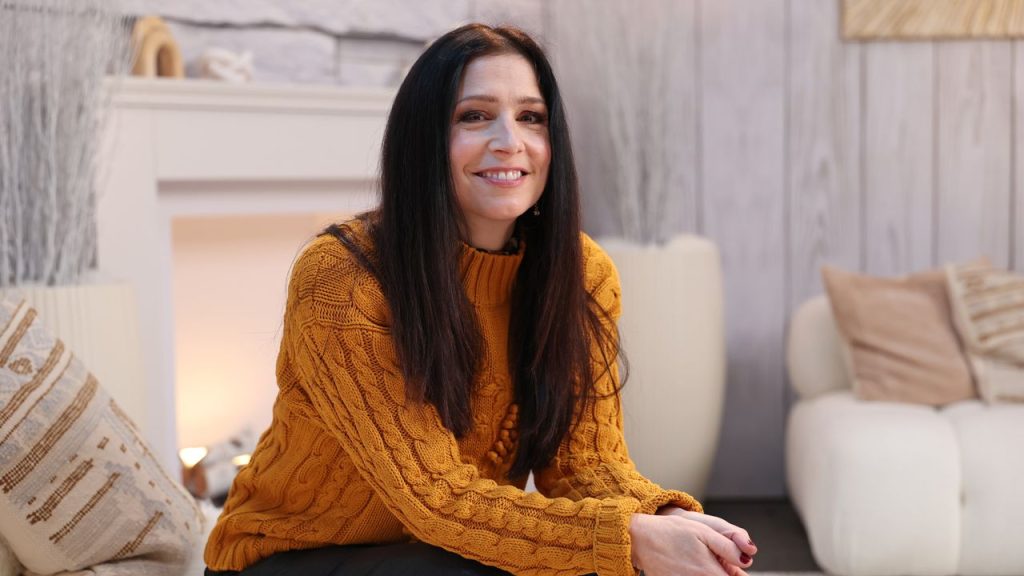Deep into an evening spent on the set of the Sundance series This Close, Shoshannah Stern and Marlee Matlin started chatting while waiting to resume filming on a long dinner scene. The pair had already bonded as deaf actors. Stern, who also served as the show’s cocreator and executive producer, had found great inspiration in her Oscar-winning costar. She can’t recall what they were talking about exactly, but at a certain point, she noticed Matlin staring at her.
“She’s looking at me and she says, ‘You need to direct,’” Stern says.
What was going on in Matlin’s head at that moment?
“It was late at night, and I kept thinking as I was watching her that she’s been around this industry for a while—and it just popped into my head,” she says. “She doesn’t give up easily when it comes to writing. She doesn’t give up easily when it comes to acting. She sets her mind to it. So why not go beyond that, and go up beyond to direct?”
Around this time, producers had approached Matlin interested in making a documentary about her life. She stipulated that she would participate only if Stern—who, again, had never directed before—helmed the film. Years later, Stern’s Marlee Matlin: Not Alone Anymore is critically acclaimed, award-winning, and now playing in select theaters. (It is also available for digital rental or purchase.) The film offers a nuanced portrait of a Hollywood icon through Stern’s bold use of craft and narrative.
Still, that night on the This Close set, Stern didn’t feel remotely ready to take such a project on. She had built her own acting career, playing roles on major series, such as Weeds and Grey’s Anatomy, before finding her voice as a screenwriter. “I literally had never thought about [directing] before,” Stern says, speaking in American Sign Language beside an interpreter. “I didn’t think I could. I didn’t think I would be allowed to.”
When I later relay this Matlin over Zoom, her face falls. “I’m basically experiencing PTSD as a result of those words being used. A lot of kids who are deaf experience those same words,” Matlin says. “I’m glad that she was able to change her mind about feeling ‘not allowed’ to say, ‘Fuck off. Fuck off.’”
Stern grew up in the Bay Area to a fourth-generation deaf family. Her mother was a stage actor. As a kid, she wanted to follow in those footsteps. This was before the passage of the Americans With Disabilities Act of 1990, though. “There were almost no captions on TV—so you’re hungry for information, you’re hungry for stories. That makes you very curious,” Stern says. “I’m always asking my friends who can hear, ‘What’s the other table talking about?’ They’re usually like, ‘I don’t know, I’m not listening.’ I would never stop listening, if I could.”
We’re pretty much by ourselves on this warm July day, however, sitting in a quiet vegan restaurant near her Los Angeles home. After she orders her lunch, Stern tells me about the challenges she faced in chasing her dreams. While she planned to study theater at college, her education was supported by the Vocational Rehabilitation program, which helps many deaf people in the transition out of high school. It requires program approval for any major. “You don’t really have freedom. They said, ‘No, [theater] is not a reasonable major to have. You’re not going to be a contributing member of society if you major in theater,’” Stern says. She chose English, while still acting in plays at Gallaudet University whenever she could.
During the winter break before her final semester, she went home and told her parents she was going to quit acting for good. The next day, she got an email from Warner Bros. with an audition offer.
The secretary for Gallaudet’s theater department had recommended Stern to the casting agents on the sitcom Off Centre, created by the Weitz brothers of American Pie fame. “She gave them my email address. I didn’t have an agent—I didn’t have anything. I was a college student,” Stern says. She booked the cheapest flight she could down to LA and completed the audition. Then she booked the part, and has essentially been in Hollywood ever since.
Even when auditioning for deaf parts throughout the aughts, Stern was often the only deaf actor in the room. This was decades out from Children of a Lesser God, Randa Haines’s searing 1986 take on the romantic drama that made Matlin the first-ever deaf actor to win an Oscar. (Troy Kotsur became the second for CODA, which also starred Matlin, in 2022.) Stern bristles when hearing that movie called “groundbreaking,” to say nothing of other milestones achieved by her and her peers before and since. “Stories about deaf people can be groundbreaking. They can,” Stern says. “But I would like to think that it’s because they push perspective, they push the form, they push understanding, they push the nuance.”

